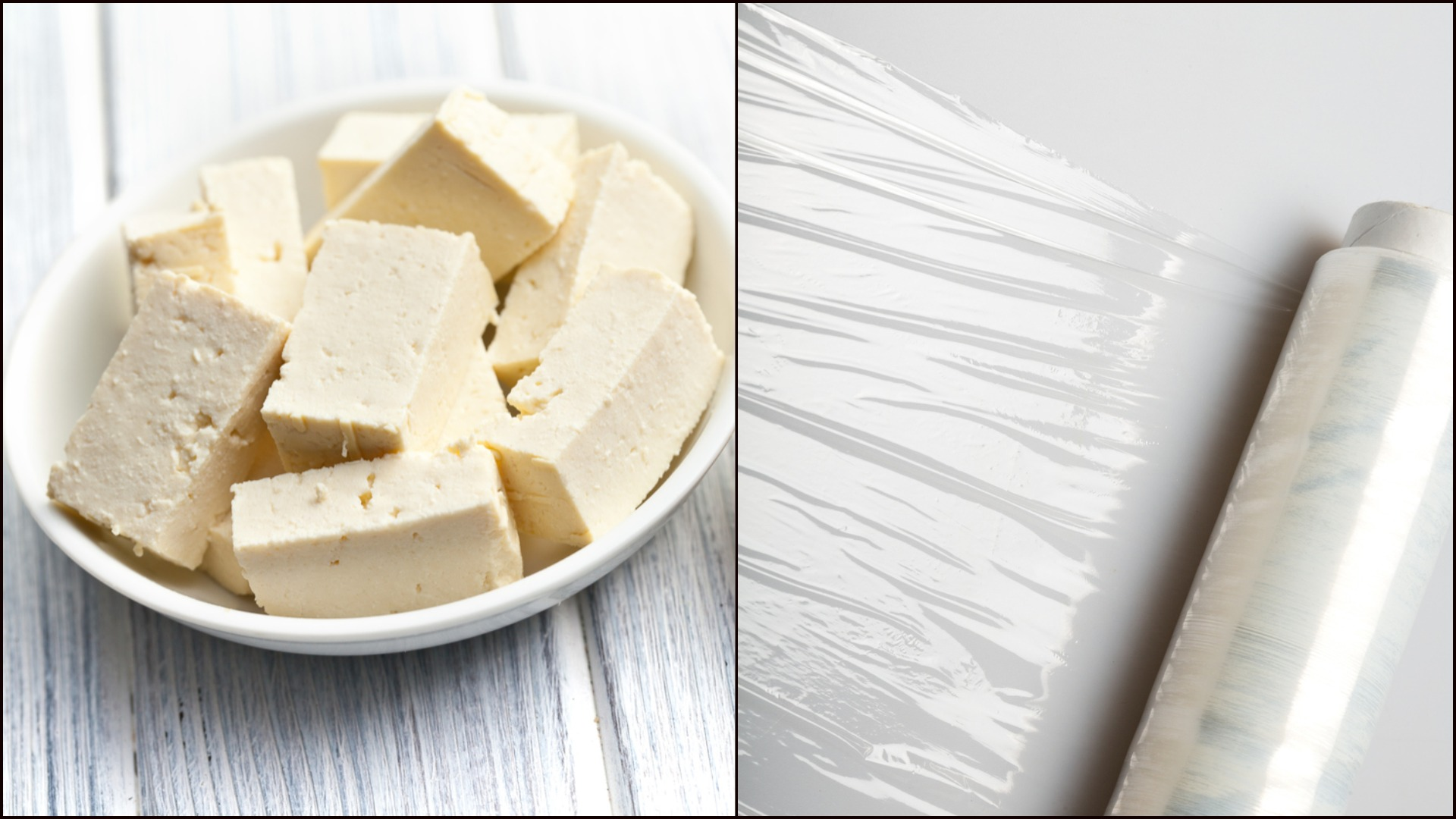Plastic Is Killing Us, But Maybe Soybeans Can Save The Day
Seeing your favorite restaurant using paper straws, recycled napkins, and biodegradable cutlery might make you, the consumer, feel like you're doing something positive for the environment. Unfortunately this is all just a drop in the bucket as far as restaurant waste is concerned, as these businesses remain completely dependent on plastics, particularly plastic wrap. The development of a food safe, ecologically responsible alternative has been slow going, but CNN reports that a new product made from soybean byproducts could potentially be the solution that the food industry has been waiting for.
Invented by William Chen, a professor of food science and technology at Singapore's Nanyang Technological University, the new biodegradable food wrap is made from cellulose, a form of fiber that's commonly used as a replacement for plastics in many disposable goods. Cellulose-based wrappings are nothing new, but poor resistance to moisture—among other mechanical shortcomings—has kept them from being a practical option for food packaging and storage. Chen noted that most of these wrappings are made from wood or corn that has been specifically cultivated for that purpose, whereas his product addresses two major environmental issues at once: plastics and food waste.
"In Singapore, the amount of food waste we generate every year can fill up 15,000 Olympic-sized swimming pools," he says. Waste generated from the soy industry is significant: In Singapore alone, 30 tons of residue are produced and disposed of every day. The residue is created when soybeans are crushed to extract their liquid, which is used to make tofu, soy milk, and other popular products. Chen has developed a process in which the normally discarded soy pulp is fermented, transforming it into cellulose.
The major advantage of this new process, Chen says, is its potential scalability: bioplastics are typically far more expensive than good ol' fashioned petrochemical plastic, and for an industry with notoriously razor-thin margins, high prices are enough of a barrier to prevent restaurants from switching out one of their most used items for a greener alternative. Because it's derived from food waste, Chen says his soy-based wrap costs "almost nothing" to produce, and breaks down naturally within a month of being disposed of with regular kitchen trash.
Chen and his team of scientists are still in the early stages of bringing their invention to market; a recently formed partnership with soy-based beverage manufacturer F&N will give the lab an unlimited supply of soy residue directly from the factory. As the old saying goes: Give a man an unlimited supply of soy residue, and the sky's the limit.
